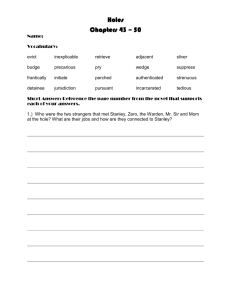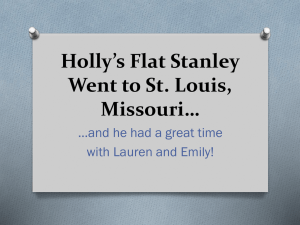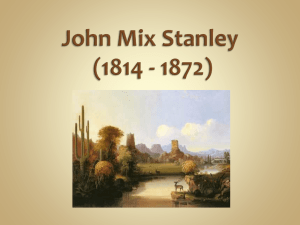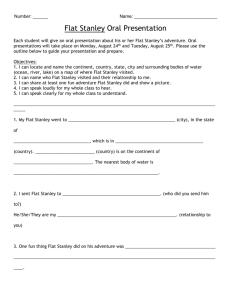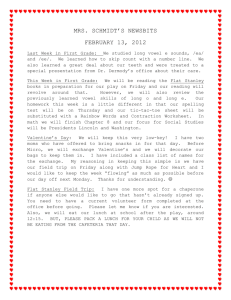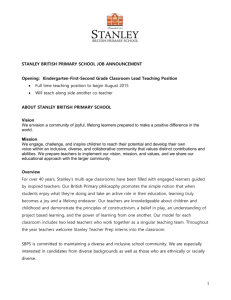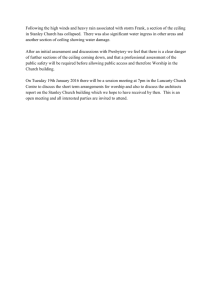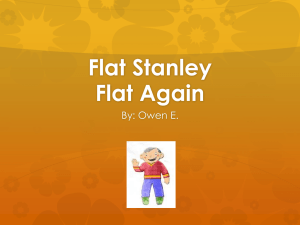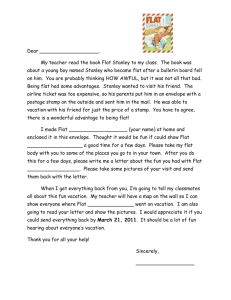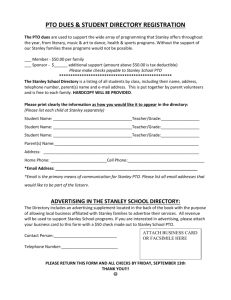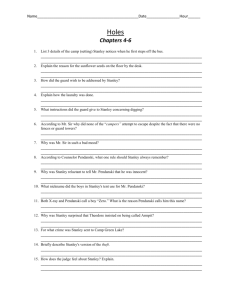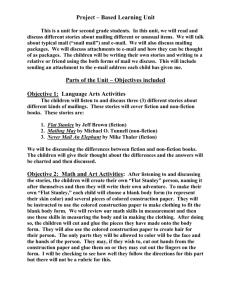Flat Stanley Project
advertisement
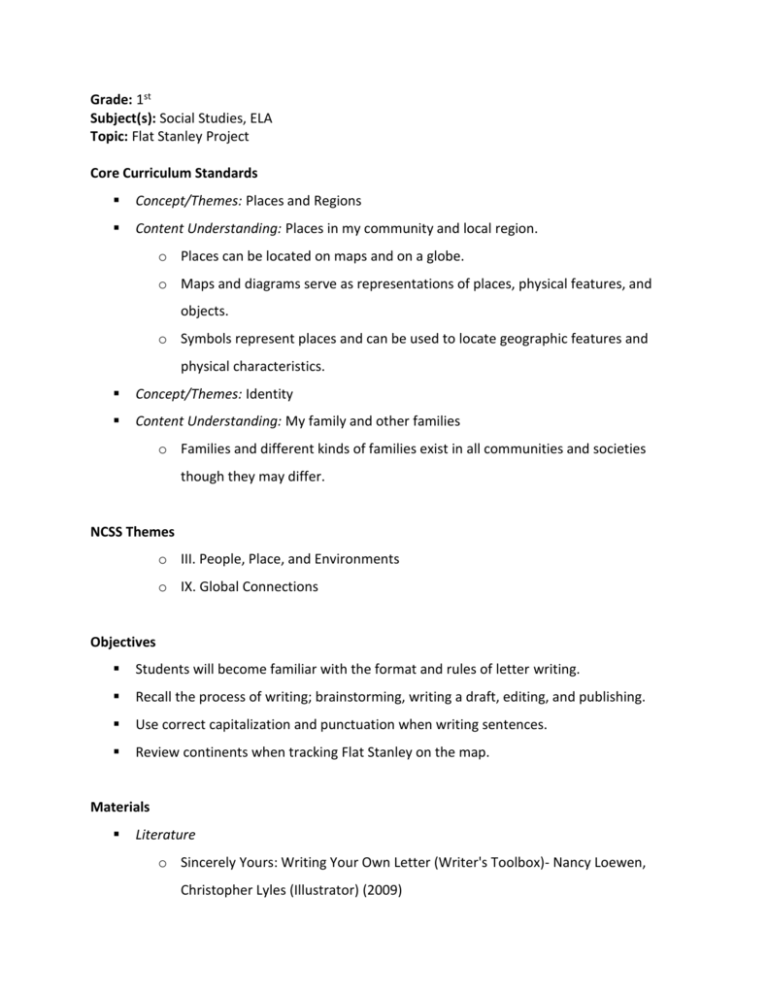
Grade: 1st Subject(s): Social Studies, ELA Topic: Flat Stanley Project Core Curriculum Standards Concept/Themes: Places and Regions Content Understanding: Places in my community and local region. o Places can be located on maps and on a globe. o Maps and diagrams serve as representations of places, physical features, and objects. o Symbols represent places and can be used to locate geographic features and physical characteristics. Concept/Themes: Identity Content Understanding: My family and other families o Families and different kinds of families exist in all communities and societies though they may differ. NCSS Themes o III. People, Place, and Environments o IX. Global Connections Objectives Students will become familiar with the format and rules of letter writing. Recall the process of writing; brainstorming, writing a draft, editing, and publishing. Use correct capitalization and punctuation when writing sentences. Review continents when tracking Flat Stanley on the map. Materials Literature o Sincerely Yours: Writing Your Own Letter (Writer's Toolbox)- Nancy Loewen, Christopher Lyles (Illustrator) (2009) Other o Projector/Internet to access website o Writing Paper o Markers, crayons pencil o Scissors o Glue o Cloth scraps o Yarn (hair) o Any other materials to make a Flat Stanley Anticipatory Set Read Aloud o Sincerely Yours: Writing Your Own Letter (Writer's Toolbox)- Nancy Loewen, Christopher Lyles (Illustrator) (2009) o During reading point out important aspects of writing a letter. Procedure Flat Stanley Project (http://www.flatstanley.com/) o Useful tool to setup/sign-up for: Classroom Edition: http://www.flatstanley.com/app/?id=ed_fs o Introduce the Flat Stanley Project through the website (http://www.flatstanley.com/about?subpage=how_it_works) o Explain what the project is o Show pictures of where flat Stanley has been; discuss geography aspects for review (http://www.flatstanley.com/map) Draft of Letter o Whole Class Write on the board how to setup a letter (date, greeting, intro sentence, and closing) Ask students to recall aspects of writing a letter. On the board should be an opening draft that all students’ letters will have. (Ex. Sentence explaining what the flat Stanley project is, where they are from (school, state, town etc.). Use student input to construct an opening sentence) Students will then write 4 more sentences independently. Brainstorm ideas of possible sentences (what Flat Stanley did at school with them, weather in our area, where they hope Flat Stanley goes, etc.) o Independent Activity Students will work on their first draft of their letter. During this time call students up individually to conference with them briefly. If students finish their draft, work on editing the letter with them. When the draft is edited students may work on making their own Flat Stanley paper doll. Final copy of letter will be produced in another lesson after all have finished the editing process. Assessment Observation o Whole class discussion of aspects and format of writing a letter. Parts of a letter Punctuation, capitalization, sentence structure Use a full sentence Edit Rubric o Use an editing rubric when conferencing with student’s on their draft. Rubric will be used as student’s assessment grade.
